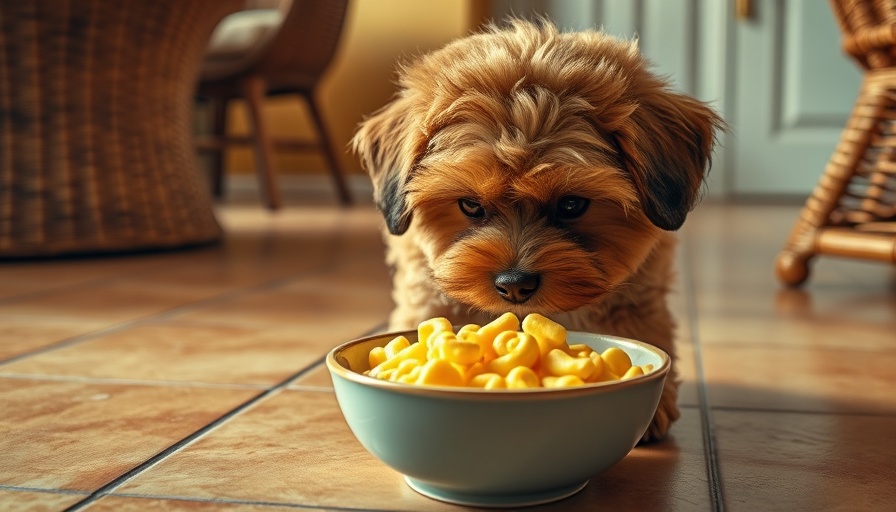
Can Dogs Eat Mac and Cheese? The Short Answer is Mostly No!
As a loving dog owner, encountering those soulful puppy eyes while you enjoy a plate of mac and cheese can be heart-wrenching. It’s an all-time favorite comfort food for many families, but is it safe for your best furry friend? The quick answer is no, dogs shouldn't indulge in macaroni and cheese. While they can manage a small bite without immediate danger, the long-term implications are concerning.
What's Inside Mac and Cheese?
The complexity of macaroni and cheese goes beyond just macaroni and cheese sauce. The essential ingredients typically include macaroni noodles, butter, flour, milk, cheese, and assorted seasonings. While these components create a delectable dish for humans, they pose several health risks for dogs. Macaroni is a type of grain that is not suited for dogs, particularly those with gluten sensitivities. Furthermore, dairy products used in the dish can cause digestive issues in lactose-intolerant pooches.
The Dangers of Feeding Your Dog Macaroni and Cheese
These ingredients can lead to various health problems when shared with our canine companions. Here's a rundown of the risks:
- Weight Gain and Obesity: The high carbohydrate and fat content can lead to gradual weight gain, making your dog susceptible to obesity-related health problems.
- Digestive Issues: Dogs are not designed to digest pasta and sometimes struggle with dairy, resulting in stomach pain, vomiting, or diarrhea.
- Diabetes Risk: Regular consumption of high-carb foods can lead to an increased risk of diabetes, as their bodies aren't efficient at processing sugars.
- Gut Sensitivities: Ingredients like excessive salt or artificial flavorings can exacerbate existing health conditions in dogs.
What Should You Do if Your Dog Eats Mac and Cheese?
If you accidentally let your dog sneak some mac and cheese, don’t panic! Monitor them for any signs of distress such as vomiting, lethargy, or unusual behavior. A small bite might not lead to immediate complications, but it's essential to prevent future incidents.
Alternative Treats for Your Pup
So if mac and cheese is off the table, what alternatives can you provide that still feel like a treat for your dog? Here are a few healthier options:
- Plain Cooked Pasta: A small amount of plain, cooked pasta (without sauce or seasoning) can be a safe indulgence.
- Steamed Veggies: Carrots, green beans, or sweet potatoes offer a nutritious, crunchy delight.
- Specialized Dog Snacks: Invest in dog treats made specifically for canine dietary needs, ensuring flavor and safety.
Fun Ways to Make Dog Treats Feel Special
Just because dogs shouldn’t have mac and cheese doesn’t mean they can’t enjoy their meals! You can create fun and engaging alternatives tailored just for them. Consider making homemade dog treats, or adding some chicken or beef broth over their dry food for added excitement. Engage your pup's senses—using texture and taste to create a delightful mealtime experience can enhance your dog's overall enjoyment!
Time to Reassess Fido’s Diet
Understanding your dog's nutritional needs is vital in creating a happy, healthy lifestyle for your pet. Transitioning into a diet that avoids harmful ingredients can maximize their health and longevity. Monitor any new foods introduced to ensure that they respond well. Always consult with a veterinarian if in doubt.
Final Thoughts
As a responsible pet owner, knowing what foods to avoid is just as crucial as knowing what to include in your dog’s diet. While mac and cheese might be a delightful treat for you, it’s wise to stick to healthier alternatives for your furry friend. The next time you’re digging into this comforting dish, remember to choose a safe treat for your dog instead!
 Add Row
Add Row  Add
Add 


Write A Comment